From Soju to Makgeolli: Top 7 Korean Fermented Drinks You Should Know
- byTolulope Ayileka
- 1 year ago
- 0 Comments
- 5mins
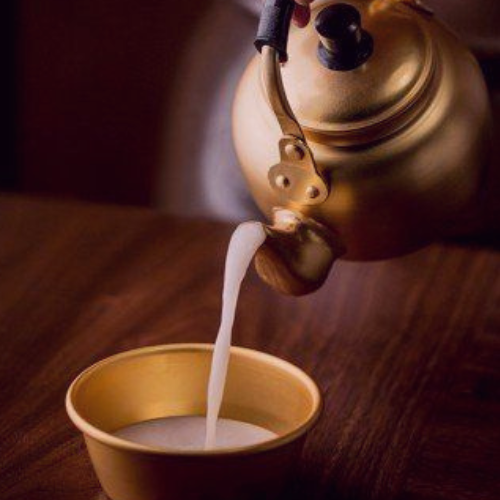
Annyeong, Hamkke Chingu-deul!
It’s no big news that Koreans love to drink. Koreans actually have a rich drinking culture which dates back to centuries ago and they are literally the Italians of Asia.
And Guess what a good number of their drinks are made from?
Drumroll, please...RICE!!!
Here are some of South Korea's most popular fermented rice drinks
1. MAKGEOLLI (막걸리)
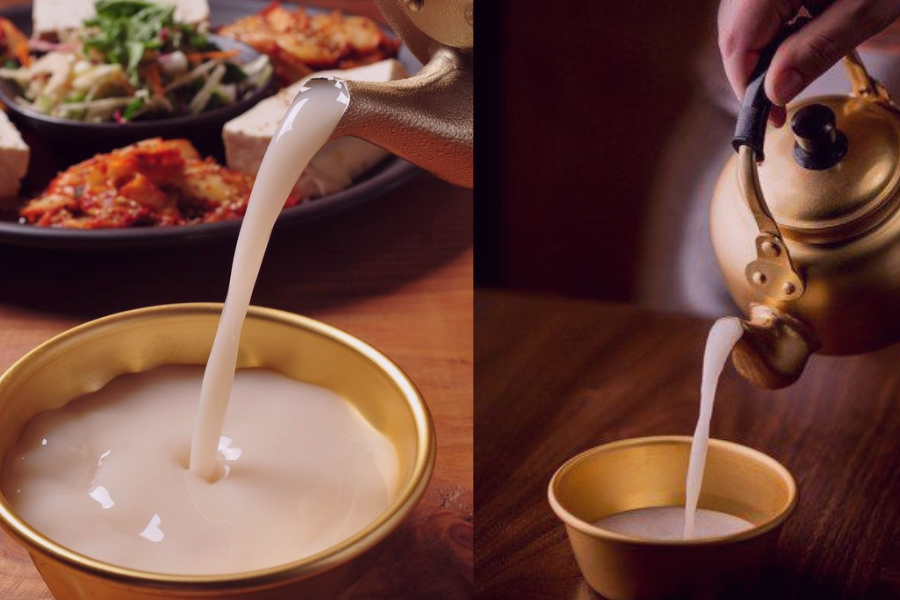
Makgeolli is a popular local alcoholic drink in Korea. It is also called nongju which means farmer's wine. It is a traditional rice wine made from fermented rice, yeast, and water. It is tangy with a slightly sweet taste and has a milky/off-white appearance. It is the oldest alcoholic drink in Korean history dating back to the founding story of the Goguryeo Kingdom in Jewang Ungi, a 13th-century historical Goryeo Korean book.
Makgeolli has an alcohol content of 6 – 9% and recently several flavors such as strawberries and banana flavors have been added to create more variety.
2. SIKHYE (식혜)
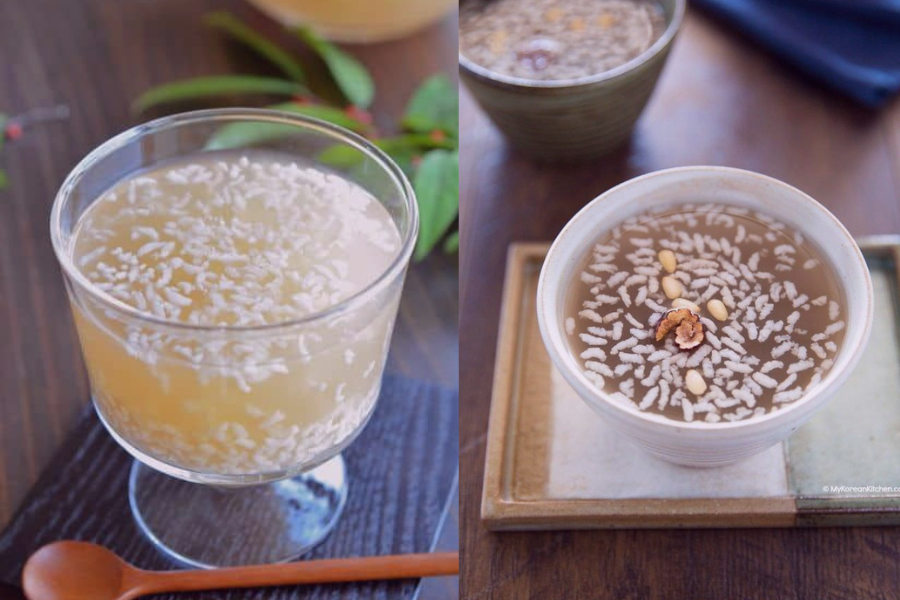
Sikhye is a traditional non-alcoholic fermented sweet rice drink unlike Makgeolli and is perfect for non-alcohol consumers. It is made from fermenting cooked rice with malt and is usually served as a dessert. Sikhye also contains visible floating grains of rice so don’t be shocked when you see rice in your cup because you paid for it and enjoy the sweet taste of drinkable rice dessert that is Sikhye.
There are several local varieties of Sikhye that contain ingredients such as radish, carrots, chili pepper, pumpkin, and honey.
3. SOJU (소주)
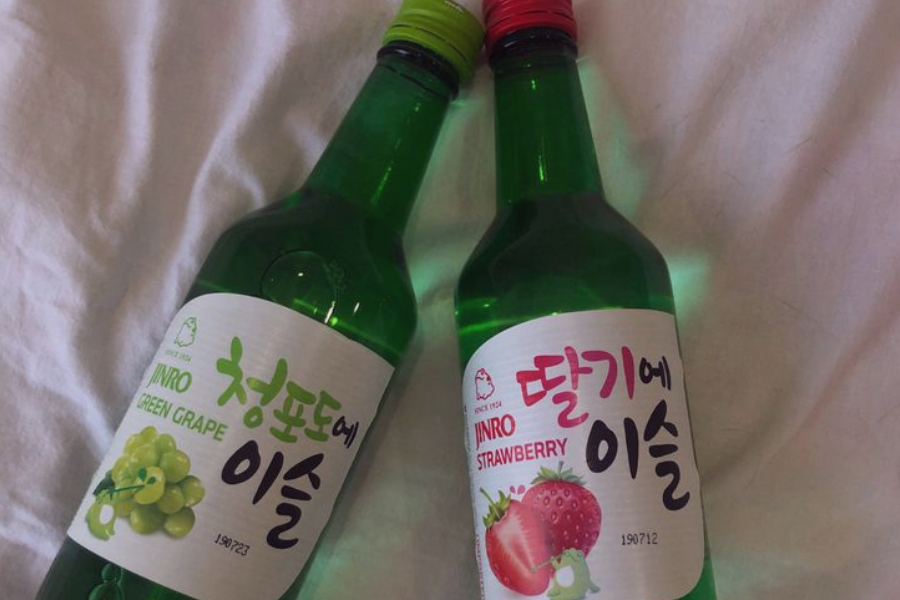
If Kimchi is the national food of Korea then Soju is Korea’s national drink. An elixir of truth and the number one love confession serum in all our favourite K-dramas, Soju should be a wonder of the world by now.
It is a clear, colorless, and slightly sweet alcoholic beverage made traditionally by distilling alcohol with fermented rice and has an alcohol content that varies from 12 – 50%. However, due to commercialization, ingredients like distilled ethanol and cassava are often used.
Soju is often mixed with other alcoholic drinks like Beer and spirit to make Soju Bombs.
4. DONGDONGJU (동동주)
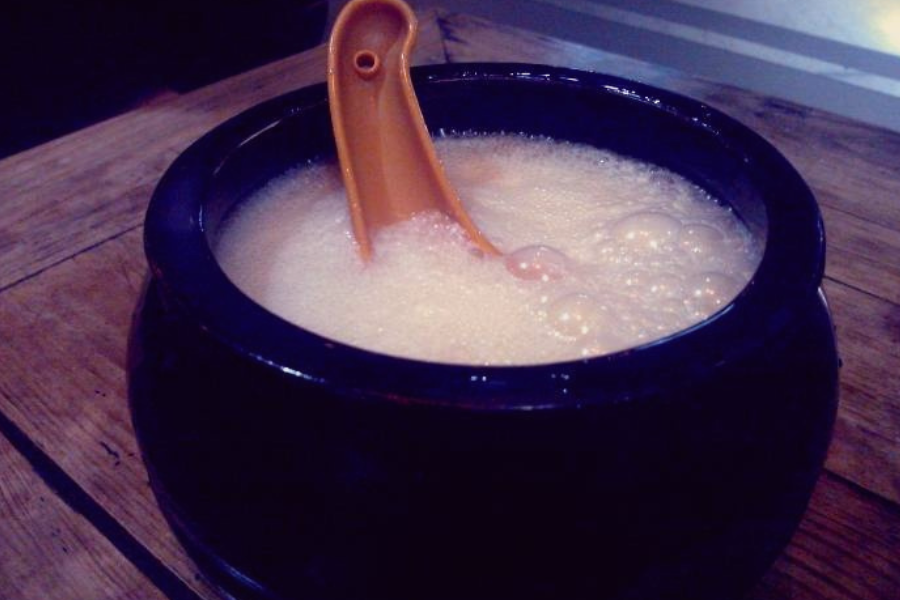
Dongdongju is another rice wine that is very similar to makgeolli. It is made with rice, yeast, and water but is much thicker, creamier, and sweeter than makgeolli.
It has a shorter fermentation process and is not filtered leaving visible rice grains floating on the drink. It is often served cold and in bowls.
There are several other local varieties of dongdongju with ingredients such as pumpkin, corn, ginseng, millet, deodeok, and other local varieties.
5. YAKJU (약주)
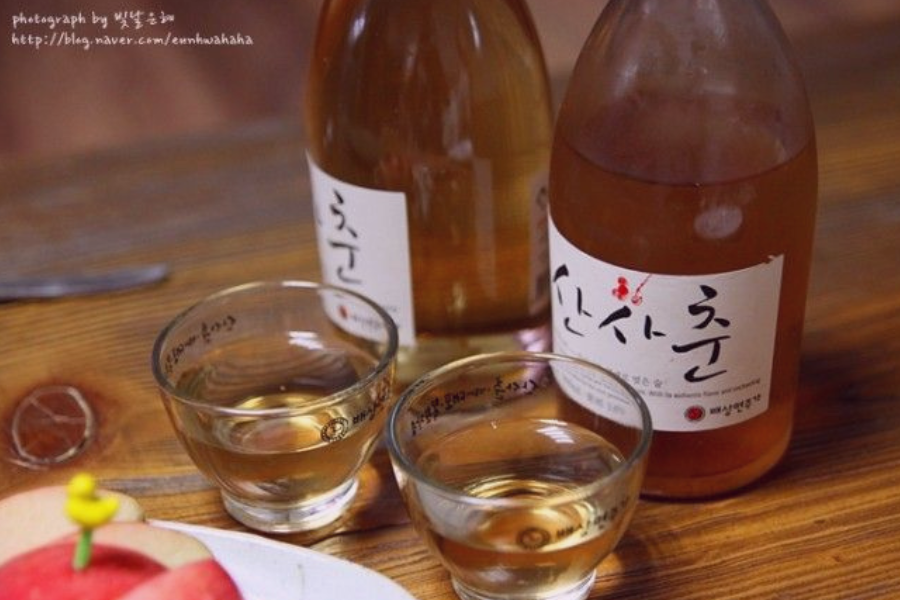
Yakju also known as Cheonju or medical wine is a clear rice wine and dates far back to the 12th century.
According to history, clear, refined wine was served in the royal court while milky, unrefined wine like makgeolli was popular among the common people. Yakju is made by fermenting rice with nuruk, a traditional fermentation starter with herbs, and has a smoother taste and is more alcoholic than unrefined wine.
Some of the herbs used are ginseng, chrysanthemum, and lotus leaves.
There's a popular saying that when you drink Yakju, you get drunk easily and sober up quickly. So, drink responsibly.
6. BOKBUNJA-JU (복분자주)
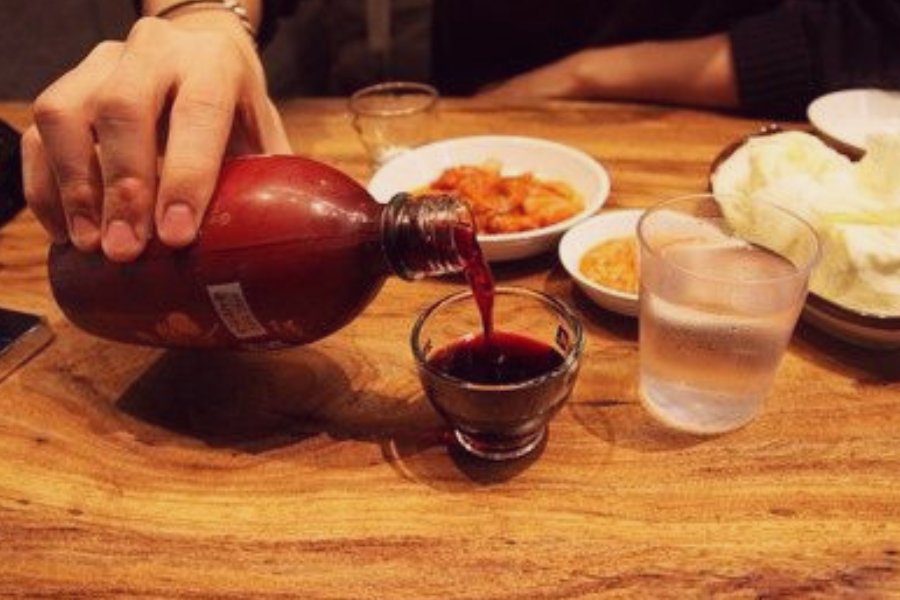
Also called Bokbunja wine, it is a fermented alcoholic beverage made from fermenting Korean black raspberries (bokbunja) in water. However, some varieties contain rice and mushroom extract.
Bokbunja-ju is sweet, deep-red in color with 15 - 19% alcohol content and is often consumed because of its rumored health benefits of enhancing stamina (cough cough)
7. BAEKSEJU (백세주)
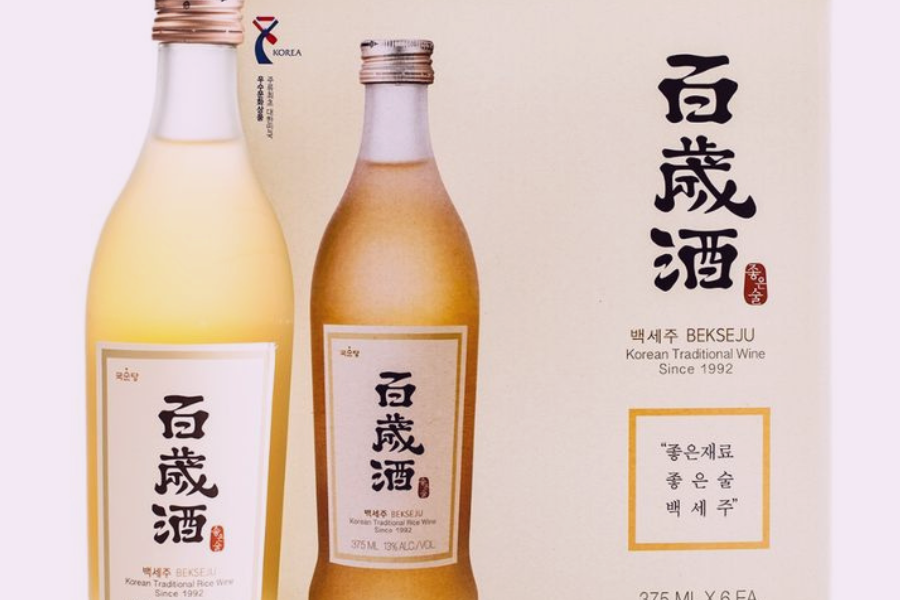
Baekseju is one of the lesser-known rice wines in Korea. Unlike soju and makgeolli, it is an herbal rice wine made from fermented rice and a variety of medicinal herbs such as ginseng, ginger, cinnamon, and licorice. Due to this, it does not have a sweet flavor compared to other rice wines.
However, it is widely believed in Korea that consuming baekseju will promote longevity of up to 100 years old. Someone needs to make this product into a face mask.
These fermented rice drinks are enjoyed in different areas of Korea and even outside the country often used in social gatherings (Soju) and even in cultural rituals like funerals and remembrances (Yakju). Their natural fermentation processes make them healthier to consume and they are symbols of the rich historical history of Korea.
If you have them on your bucket list, remember to drink responsibly and with a trustworthy friend in case you pass out.
Tolulope Ayileka
Tioluwa is a lover of all things good story telling and adventure, so it's no surprise she's officially hooked to all things Korean. She believes learning and having fun is synonymous and prides herself a K-drama guru. From Korean lifestyle to history, she's all over it like sauce on kimchi.
0 Comment(s)
Related Posts
Daily Newsletter
Get all the top stories from Blogs to keep track.





Leave a comment